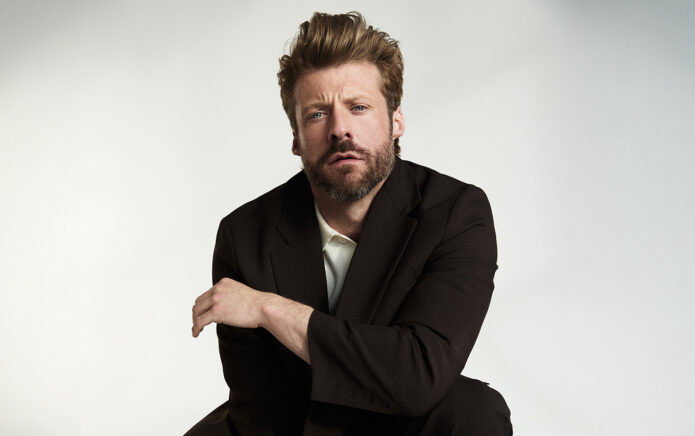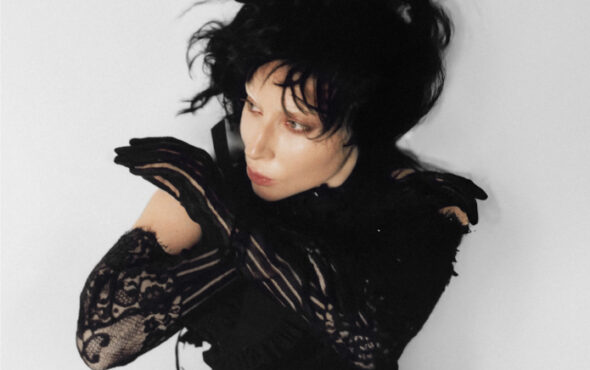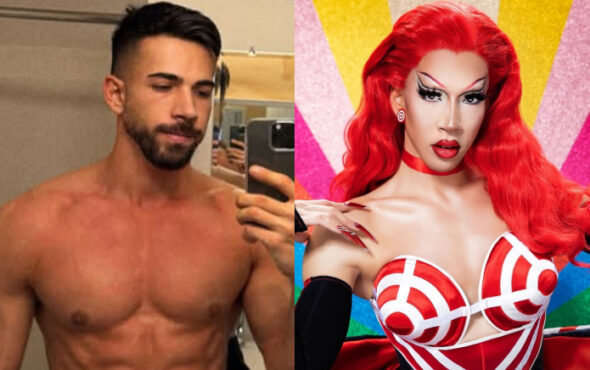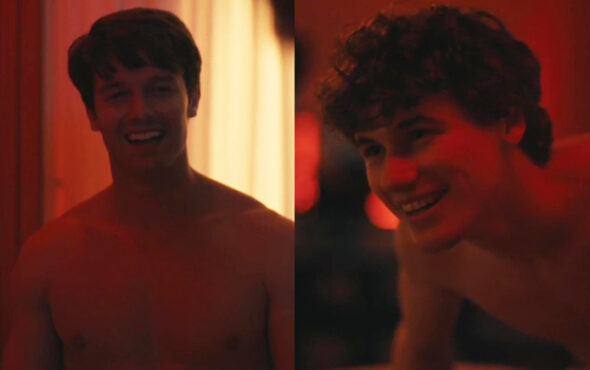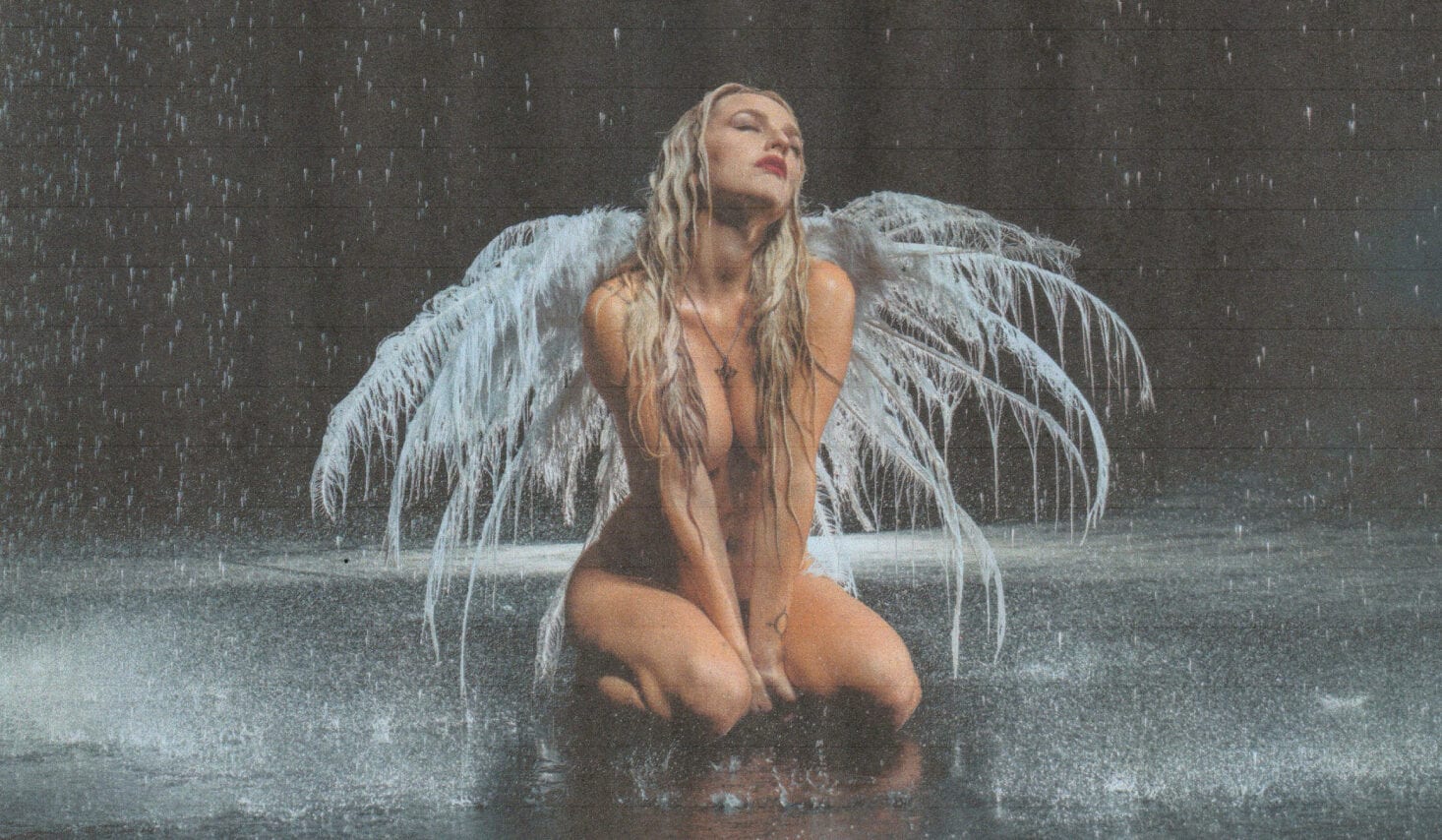
In the two years since we last spoke to Zolita, the singer-songwriter has continued to showcase her beloved brand of lesbian witch-pop with infectious anthems such as Shut Up and Cry, Oblivion and Bedspell. All three appear on her concept debut album, titled Evil Angel, a thirteen-track collection that depicts a relationship with a former lover. It’s relatable, filled to the brim with fresh ear-worms and queer as hell. Who’s doing it like Zolita right now? We’ll wait. We’ll be here for a long time, but we’ll wait.
“There is definitely more representation, but for queer women, it’s still so limited,” she tells GAY TIMES. “A lot of the visual representation we have are period pieces, or toxic, but I don’t go into it thinking I need to make perfect representation, because at this point, it’s second nature.” She adds: “I just want to do witchcraft and have it be really gay with a really great aesthetic. I want to give it to everybody.”
To commemorate the release of Evil Angel – out today! – we caught up with Zolita over Zoom to discuss her long-awaited debut album, the lack of unapologetically femme queer women in the music industry, and why LGBTQ+ people have always viewed witchcraft as an “alternative religion”.
The album is finally here! How excited are you to get Evil Angel out there?
I’m so excited, I feel like it’s been such a long time coming! I used to have this idea in my mind that I needed to be older to put out an album, or I needed to be with a label or have some sort of success before I put it out. Then, I realised there’s no rules. I’m a storyteller first and foremost, which is why the music videos play such a big role in my work. I think currently in the music industry, the right way to do it is single, single, single, single and don’t put out a full album, and by the time you put out the full album, there’s like one new song on it.
I feel like that’s good for your business, or whatever, spreading out the content, but I feel like my favourite artists don’t do it like that; someone like Beyonce or Solange or people that put out really conceptual pieces that you have to engage with and sit down with. I’m really excited to release this, and I made a short film to go along with it, that’ll be coming out in January. I went to New York to shoot that last month, it’s a ten-minute short film, narrative dialogue. All of the songs are diegetic in it, so it’s like when I turn the radio, a little piece of one of the songs will be on, when I run into the gas station, you’ll hear in the background one of the songs, so it’s more like part of the world in the movie.
Why was Evil Angel the right title for your debut?
Drake has a song, and it was about two years ago when I was writing Truth Tea. I had two days with the producer that I work with a lot and we wrote Truth Tea. I was like, ‘I want to write another song that also kind of captures the same ideas as Truth Tea, but in a different way.’ I was pulling out the idea of Evil Angel and Drake has a song, Final Fantasy, where he says, “I need it nasty, like Evil Angel” and Evil Angel is actually hardcore porn production company! So, Drake shouts out the porn at the beginning of the song and I thought the phrase was so cool. It captures the idea of somebody that comes across so angelic and sweet and beautiful and then has such a dark inside, and it captures that duality in such a nice way, so I wanted to run with that. It’s two years since I wrote Evil Angel and I’m still inspired by the phrase.
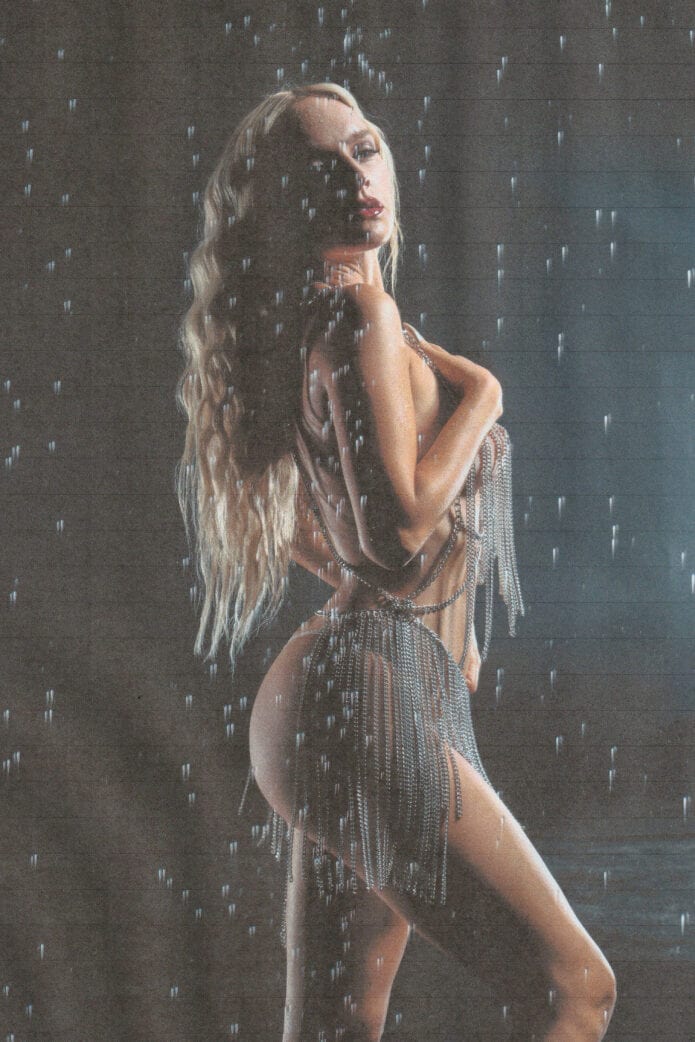
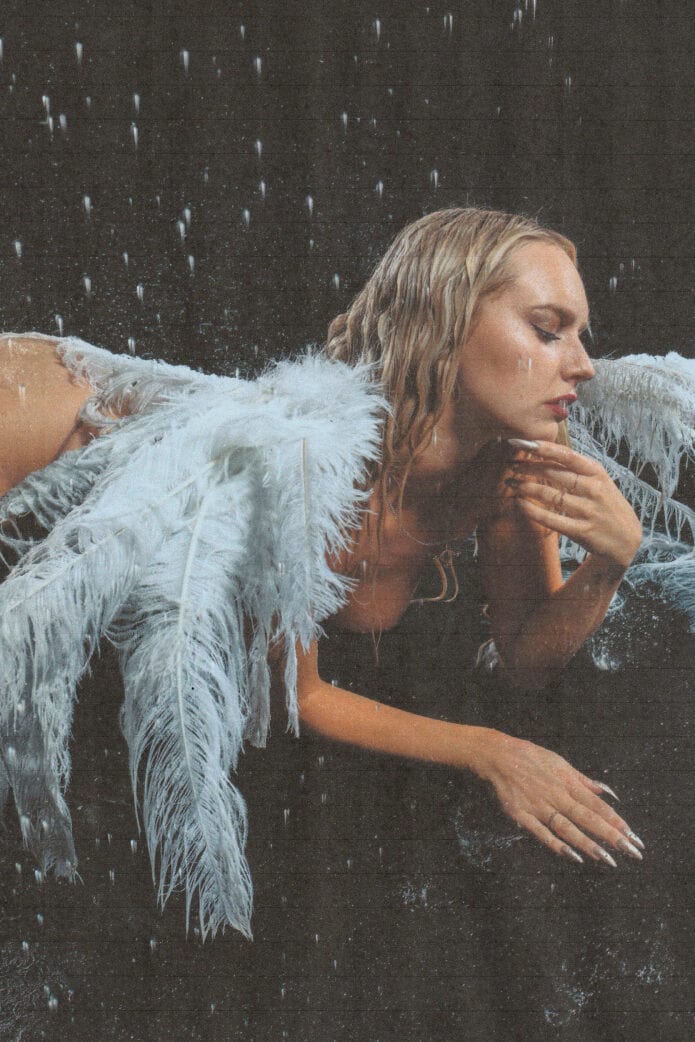
There’s a lot of religious references. Are you, as a queer woman and witch, mocking organised religion or are you referencing the witchcraft religion as a whole?
I’ve always played with either religious aesthetics and now more witchcraft magic aesthetics, just because that’s a huge part of my life. I do identify as a witch and I practice magic in my everyday life. I love the drama of it and I love exploring it in my work. I feel like queer people are so drawn to Wicca and witchcraft because it’s always been the alternative religion, it puts the power in yourself, and it’s not historically been a religion that doesn’t like queer people.
You incorporate a lot of your witchcraft within your music – is every song specific to a particular experience you’ve had?
The whole album is based off of one relationship. It was a relationship that I was able to write a lot about, because it was such a dramatic ending. It was really easy to access the negative feelings about everything, writing the middle to the end of the album with Oblivion and Orchard Street and the nostalgic sad parts, because even when somebody really fucks you over, you’re allowed to start accessing the parts where there were good moments in that relationship. I wish I could have one more moment when I didn’t know what I know now. The first few songs I wanted to be more positive and about the moment when you’re falling for somebody, when you have a crush on somebody. Bedspell, which is about the first weekend that you spend with them and you can’t leave, was a little bit harder to write about, specifically that relationship. I was more pulling from my life now.
Your video for Bedspell is really incredible – one of your best so far. How was the experience of filming and co-directing that in lockdown?
I co-directed with my friend, Genevieve Andrews, who I met a few months ago and love everything she does. She’s an incredible production designer and director. I was like, ‘Oh, this could be a perfect match.’ When I’m directing and in front of the camera, there’s so much to think about and I’m putting so much trust in my crew and my DP. So, I just thought it would be really nice to have someone do this with me that I could trust to be like that, and who has such a great visual eye as well. I worked with her on Bedspell and the idea behind it, because I was doing a short film, I wanted to do a video that was a pop music video. I wanted choreo, I wanted it to be really hot. I wanted to give everybody exactly what they want!
I just want to do witchcraft and have it be really gay with a really great aesthetic. I want to give it to everybody.
Trust me, you did!
I wanted a hot love storyline and I wanted to dance in a church. When I booked the church, she was like, ‘I just need to make sure there isn’t anything too scandalous.’ And I was like, ‘There’s no sexual blah, blah, whatever, we’re gonna be in very skimpy outfits and dancing, but that’s it.’ It was really fun and my first video that I shot in LA, and it was done in the middle of the pandemic, which obviously played a big role in everything. I just want to do witchcraft and have it be really gay with a really great aesthetic. I want to give it to everybody.
I think there was one person who said on Youtube, ‘Zolita just wants to make music videos to kiss a hot girl.‘
[Laughs] Just make out with a hot girl, sprinkle some witchcraft in there and we’re all good.
It feels crazy to say that, in 2020, there’s still not many music videos that show femme queer women unapologetically being femme queer women. What are your thoughts?
There’s obviously so many openly queer artists and there’s so many artists who don’t even have to say like, ‘Oh, I’m queer,’ but they’re thinking about queer experiences. There is definitely more representation, but for queer women, it’s still so limited. A lot of the visual representation we have are period pieces, or toxic, but I don’t go into it thinking I need to make perfect representation, because at this point, I’ve done a good amount of videos. It’s second nature and I’m telling my life, but I do go into each video like, ‘What have I not done? What have I not shown yet?’ There is a common theme aesthetically in my videos, but I do go into them like, ‘Who have I not represented well enough yet?’
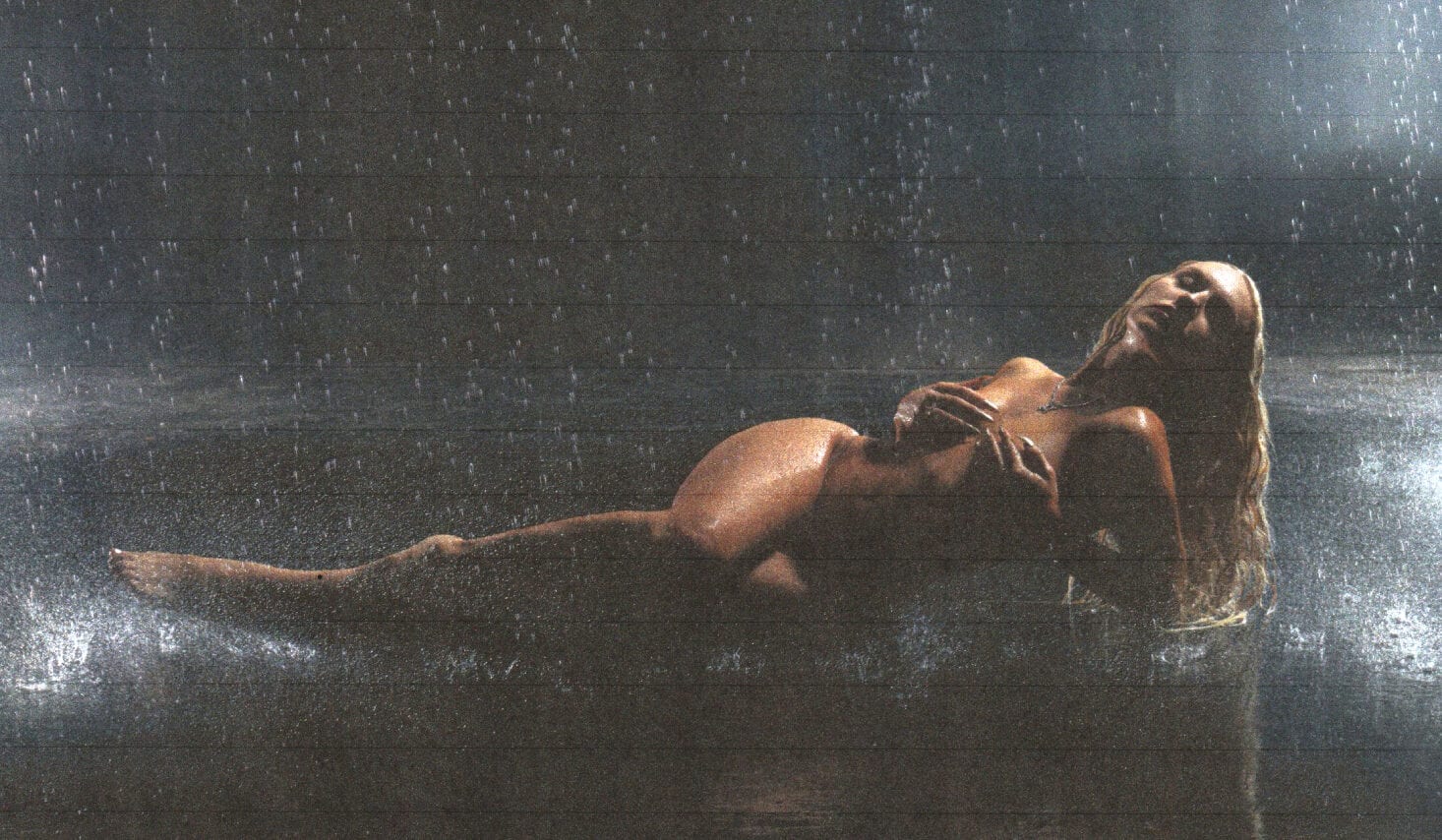
When we last spoke, you said one of the hardest things about being an independent artist is the low budget – even though a new fan would probably assume you’re funded by a label, because everything is so polished. Is this still a problem for you?
It’s the same thing, I still have huge ideas, and it’s a constant hustle. Whatever I make on my music gets invested right back into the visuals. It’s just a constant hustle. I’m so art-minded and not dollar-sign minded, which has not been necessarily good for me because I make stuff and then I worry about it later. I have to say a big part of that is the relationships I’ve made with people that are willing to create with me, and believe in the vision. And people that I’ve been working with since Explosions, since the first video, I still have the same core team. I’ve been able to achieve such a crazy production value for such little money because of the incredible team that I have. I always figure out a way to stretch to stretch a dollar!
You have such a passionate following, especially amongst queer women – how has your relationship with your fans developed since your 2015 debut?
I would say the relationship has gotten even closer and more open and honest. I have a group chat someone created called Zolita’s Clowns, and it’s got like 30 or 40 diehard fans. I pop into the group chat every now and then and see what they’re talking about. They’re just the sweetest, most supportive people. I definitely have a really close relationship with them. And there’s a few that I like to talk to all the time, that have ideas that they want to promote me with. There’s also tools like Instagram Live, streaming parties and YouTube premieres where I get to watch things in real time with the fans.
You teased a film for Evil Angel coming out next year – what can you tell me about that?
I wrote the film before I finished the album. I went to NYU for film and I’ve always wanted to do more of a longer narrative film that involves music. Holy is my favourite video I’ve ever made. It’s the most narrative piece and I wanted to do another thing like that. It’s about me and my girlfriend, I’ve been having really crazy nightmares for months and I find this priestess in upstate New York that’s going to help me be able to deal with that. My girlfriend comes with me and we go on this road trip to meet this priestess and along the way, I realise my girlfriend isn’t who I thought she was. When I was writing the album, I was already thinking, ‘Okay, what point do you get hit throughout, what point do I want to be in, which part of the film?’ and it was all such an interwoven process. I went and shot it in New York with my original team, which was so nice.
One of the nice things about it was we bought this little retreat in upstate New York, and we’re all in a house together, everybody got tested the day before, but it was so weird to be in a house with people when you haven’t been around people for so long. It felt like summer camp. To be making art at the same time, the whole experience was very healing. Also, the retreat that we were staying at, the last time I was there was with my ex, so that part of it felt really full circle and healing. The whole experience was really incredible and I was also acting for the first time with words and dialogue! Everything I’ve done is so high glam and this was a little bit more stripped down. It was really a unique challenge. But aside from the short film, I’m gonna see what songs people love the most. And then I’ll maybe I’ll make individual videos for those as well.
Zolita’s debut album, Bedspell, is now available on streaming services – listen here on Apple Music or below.
